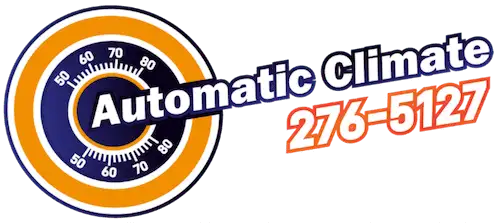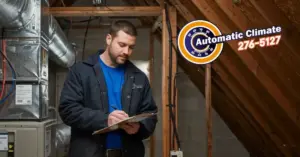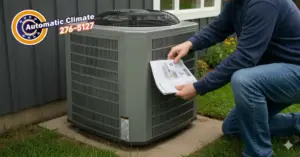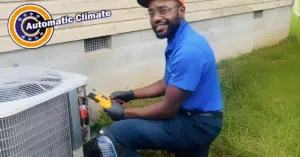Is closing air vents in unused rooms a good or bad idea?
Most of us don’t give a second thought about whether or not to close air vents in unused rooms. This scenario doesn’t come up too often in a home – since most rooms are utilized. Where it can happen more commonly is an office building, especially a large one. Instinctually we assume that closing vents would save money, and while there may be some truth to this idea, there are hidden dangers to this practice that you should be aware of. And, in the long run, not closing air vents may save you more money.
The reason for the belief that closing an air vent to reduce costs seems rather logical. If the vent is closed and there is no air being pumped into an additional room, it must mean that the air conditioner doesn’t have to “do so much work”, right? And surely if fewer rooms are air conditioned, the cost of air conditioning will be a lot lower. After all, one of the largest expenses in our home or office is heating during winter and cooling in the summer months. Seems like a logical conclusion – but it is not – and following this way of thinking may end up costing you more money than you thought you were saving.
An air conditioner blower is the most important component in the system. It is this mechanism that circulates the air through your house and sucks it back in to be heated or cooled and then redistributed. Closing an air vent causes a problem for the air conditioner’s blower. Each blower is exactly calibrated for its specific network of air ducts, so this component is strained when a vent is closed because it causes extra pressure in the air flow which in turn can cause serious damage to the blower. The reason for this build in pressure is that the same amount of air is still being circulated, but with fewer outlets.
On certain designs, the blower comes with a speed regulator, but some do not have this option. The former is known as an electronically commutated motor, and the latter as a permanent split capacity blower. Closing an air vent has a different effect on these two different types of blowers. With an electronically commutated motor, or ECM, it will start working overtime because it automatically adjusts its own output under various circumstances and will attempt to compensate for the pressure by pumping more air at a higher rate. Drawing more power to do so, your electricity bill will be higher than had you simply left the vent open.
The opposite happens to a permanent spilt capacity blower, or PSC. This type of unit slows down because it can’t handle the pressure, and the more vents you close, the lower the airflow will be. There are two scenarios that will occur if the airflow is too low. If the air is being heated, the heat exchanger which is responsible for heating up the air as it passes through the system, could overheat and sustain damage because of it. Alternately, if the air is being cooled under strained conditions, it could cause the evaporator coil – the part responsible for cooling down the air – to get so cold that it freezes due to condensation from water vapour in the air. Evaporator coils could sustain damage from freezing and this could also compromise the structural integrity of the part.
In either case, whether you have a ECM or a PSC, if the part sustains damage, the air conditioner will stop working and the impaired part may have to be replaced. Not only will the part itself cost you money but so will the call-out fee and man hours for a specialist to install the replacement part. The specialist may even have to do two sessions of work; the first to determine what the problem is and the second to bring the necessary replacement part and fit it. Let’s say you are lucky enough that your air conditioning system is still under warranty. This is good news because your parts are likely to be free of charge, but you will have to employ a specialist from a company specified by your warranty, and they charge more. Failing to find the right technician may render your warranty null and void.
High air pressure within your air conditioning system strains the ducts as well and can cause small leaks, make existing leaks larger, or in extreme cases cause the ducting to burst. In the case of leaking or burst duct work, you use more energy for less of an effect, which equates to losing money; you pay the same amount of money or more for an air conditioner that performs worse. Your home will also take longer to heat up or cool down due to the air conditioning working at sub-par levels due either to leaks or low airflow, or both. The problem in general can be aggravated if you have a ECM and turn the setting up higher to make up for the fact that the system isn’t as effective as it should be.
Since saving money is important to all of us, especially when it comes to air conditioning – which can contribute up to half of our electrical bill – the best way to save is to leave all your air vents open at all times and service your system at least once a year to ensure that it doesn’t have any leaks or cracks and that it is in good working condition.
In summary, closing an air vent causes pressure to build and offsets your entire air conditioning system. It can cause damage and may use more power, costing you more money instead of reducing costs, so to answer the question of if it’s a bad idea to close an air vent, whether it is in an unused room or not, the answer is unequivocally “yes.”
Have an HVAC related issue? Schedule a Repair, Service or Estimate today.








